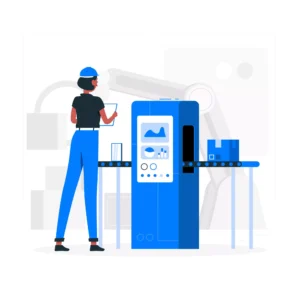How These “3 Ds” Work in HR: Digitization, Digitalization, Digital Transformation

Have you ever twisted your tongue when trying to pronounce some sophisticated term such as Digitization, Digitalization, or Digital transformation? Probably yes, or maybe no. And how about if you were asked to explain each of these terms? As a matter of fact, we often use these interchangeably, but they have distinct meanings in the world of technology. Understanding the differences is important for organizations looking to navigate the digital landscape and achieve their business goals.
In this blog, we’ll explore the differences between these terms, provide examples from the HR technology arena and highlight the benefits of implementing such technology initiatives in the business environment.
Digitization
Digitization refers to the process of converting analog information into digital format. This can include scanning paper documents, digitizing photographs, or converting audio recordings into digital files. The primary goal of digitization is to preserve information and make it easier to store, access, and share. Digitization does not necessarily involve any changes in the way information is used or processed.
In the context of HR technology, an example of digitization is the switch from paper-based timesheets to electronic timesheets. One way would be that of scanning paper timesheets, another way would be entering the data into a digital format. We have a real-life case here for you: An international staffing agency removed 3000 paper timesheets thanks to digitization, making it easier for their HR staff to manage, share and store employee time and attendance data. As a result, the payroll processing time has been reduced by 4 man-days.
Digitalization
Digitalization refers to the use of digital technologies to transform business processes and operations. It involves using digital tools to streamline and optimize existing processes, rather than simply digitizing them. Digitalization can improve efficiency, reduce costs, and enable new ways of working.
An example of digitalization in the HR technology environment is the use of time and attendance software to collect real-time data on employee attendance. Instead of relying on manual processes or spreadsheets, digitalization allows organizations to automate time-tracking and gain real-time insights into employee attendance patterns. Daily people analytics or monthly HR data reporting gives invaluable insights on how to improve employee experience and customer service. With digitalization the organizations do not rely on guess work, but can make data-driven decisions about scheduling, staffing, and resource allocation.
Digital Transformation
Digital transformation refers to the comprehensive and strategic use of digital technologies to fundamentally change how organizations operate and deliver value to their customers. Digital transformation involves rethinking business models, processes, and customer experiences with a focus on leveraging digital technologies to drive innovation and growth. These types of digital initiatives require mentality and willingness to challenge the way things have been done before. Digital transformation projects will ask for a significant investment in technology and in your people who will create the business change management team.
When it comes to HR technology, digital transformation might involve implementing artificial intelligence-powered tools, integrations with robust HCM software or CRM systems. When done properly, digital transformation will deliver an automated management of payroll, timekeeping, time off including sick days and vacations, invoicing and reporting. In manufacturing, an automated shift planning, and rotas scheduling ensures utilizing the work force with least idle time. Such transformed business modules can bring up to speed the production and deliver strategic goals faster.

In conclusion, digitization, digitalization, and digital transformation are all important concepts in the digital age. These terms represent distinct stages in the evolution of digital technologies and their impact on how the business is run. By understanding the differences between these expressions and applying them strategically, organizations can leverage digital technologies to improve operations, drive innovation, and provide quality employee experience.
